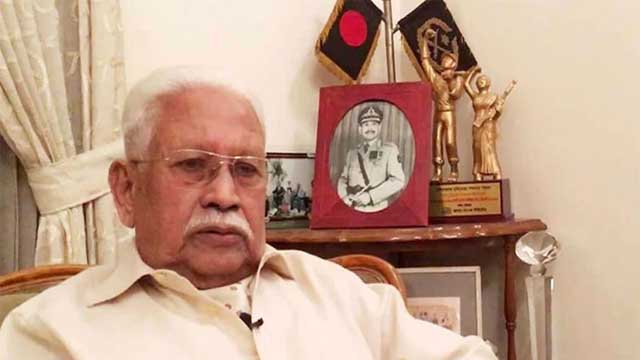
Bangladesh's First Army Chief KM Shafiullah Dies
Published:
২৬ জানুয়ারী ২০২৫, ১২:৫২

Major General (Retd.) KM Shafiullah Bir Uttam, a distinguished Liberation War hero and the first Chief of Army Staff of independent Bangladesh, passed away at the age of 90.
He died on Sunday, January 26, while receiving treatment at the Combined Military Hospital (CMH) in Dhaka, as confirmed by his personal assistant, Ziaur Rahman Moni.
Family sources revealed that Shafiullah had been battling several chronic health conditions, including diabetes, hypertension, thyroid complications, fatty liver disease, and dementia.
KM Shafiullah was born on September 2, 1934, in Rupganj, Narayanganj. He played a pivotal role in the Liberation War of 1971. As the second-in-command of the 2nd East Bengal Regiment stationed in Joydebpur, he led a revolt of Bengali soldiers at the war's outset. He initially commanded Sector 3 of the Liberation War and later led one of the three regular army brigades, known as "S Force," named in his honour. For his extraordinary service during the war, Shafiullah was awarded the prestigious title of Bir Uttam, the second-highest military honour in Bangladesh.
Following independence, Shafiullah served as the Chief of Army Staff from 1972 to 1975. He later represented Bangladesh as an ambassador to several countries, including Malaysia, Canada, Sweden, and England. Upon his return to Bangladesh in 1991, he was designated as an Officer on Special Duty (OSD) for a year before voluntarily retiring in 1992.
His passing marks the end of an era for one of the country's most valiant freedom fighters.



Comment: